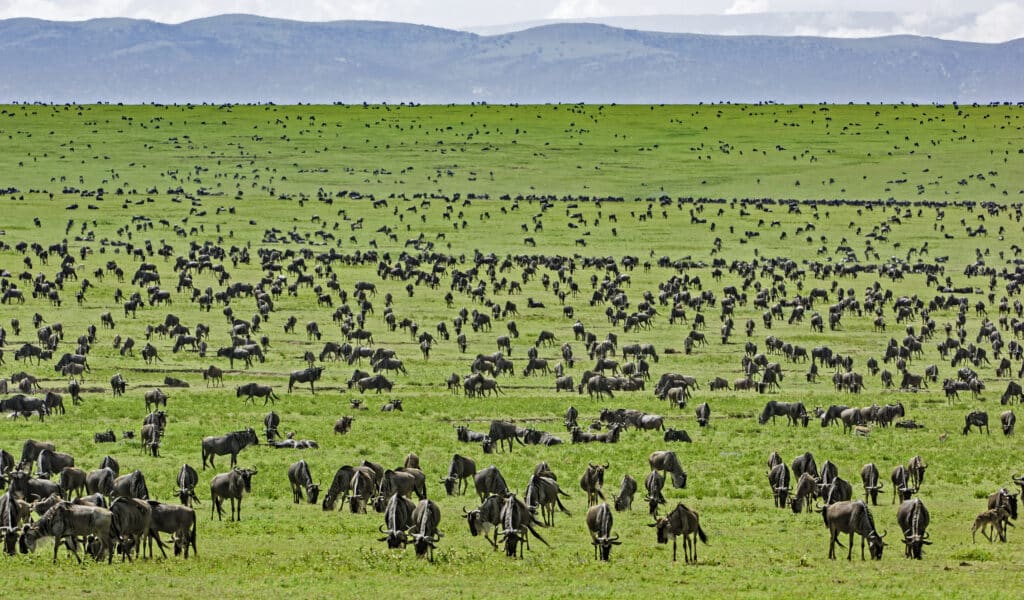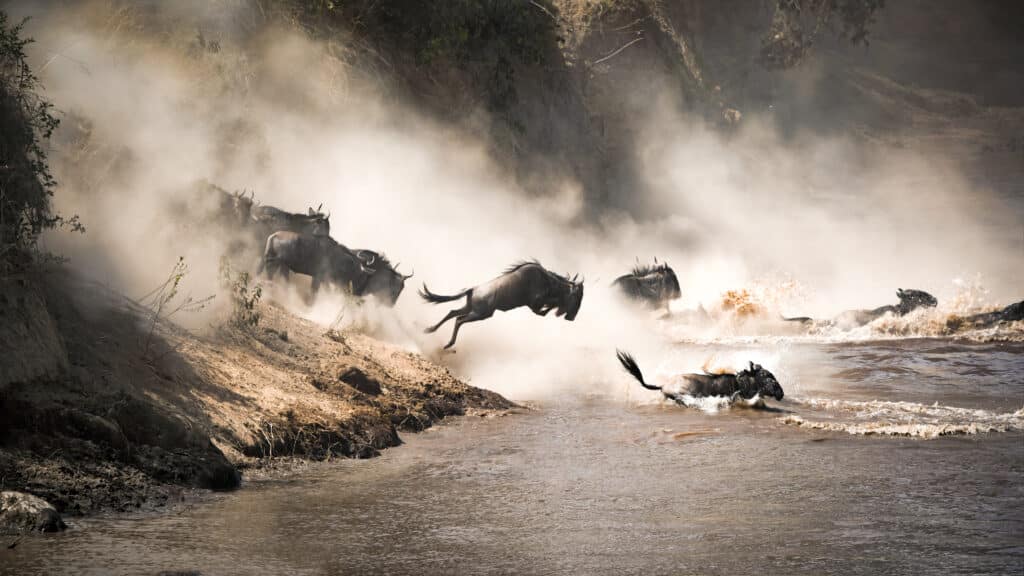The Great Migration refers to the annual movement of over two million wildebeest, zebra, and other antelope species in the Serengeti and Masai Mara ecosystems. Driven by seasonal rain and the availability of grazing, these animals migrate in a cyclical show that attracts tourists from all over the world.
In this article, we’ll explore the relationship between wildlife conservation and the Great Migration and how sustainable safari tours protects the environment during this breathtaking spectacle.
Environmental Challenges Posed by the Great Migration
As millions of animals traverse the African landscape, they encounter — and sometimes exacerbate — existing ecological pressures.
First, the sheer number of animals on the move places significant strain on the grasslands. While migratory species do play a vital role in the nutrient cycle, overgrazing can lead to soil erosion and reduced grassland regeneration in the subsequent seasons.

Water resources are also strained during this time. The massive herds require large amounts of water on a daily basis, which quickly depletes available water sources.
Joseph Ogutu, a wildlife expert, notes that, “The numbers of wildebeest were already declining due to the increased human settlements…preventing the wildebeest from accessing grazing land.”
Even more concerning, the river crossings are fraught with ecological tension. Many animals perish during these crossings, either due to predation by crocodiles or drowning. This sudden influx of carcasses into rivers can damage water quality and affect aquatic life.
What’s Being Done to Help Great Migration Conservation
While the ecological harm associated with the Great Migration warrants serious concern, dedicated efforts are being made to offset some of the negative impacts.
Establishment of Protected Areas
National parks, reserves, and conservancies like the Serengeti National Park in Tanzania and the Masai Mara National Reserve in Kenya have been set up to safeguard key habitats and migration corridors.

These areas prohibit or regulate human activities such as hunting and infrastructure development, thereby minimising habitat disruption.
Habitat Restoration
Overgrazed and degraded areas are being rehabilitated to restore natural vegetation.
These efforts include controlled burns to revitalise soil nutrients, grass seeding, and controlled grazing by domestic animals.
Research and Monitoring
Continuous research and monitoring of migratory routes and habitat quality help inform critical decision-making. Tools such as satellite collaring are used to track animal movements, assess threats, and plan interventions when necessary.
Water Resource Management
Building sustainable water points in strategic locations ensures that migrating herds have access to water without depleting natural sources.

Monitoring water quality, especially after major river crossings, also helps assess and address pollution or over-nutrient issues.
Wildlife Corridors
The establishment and maintenance of wildlife corridors allow animals to move freely between habitats. This reduces instances of human-wildlife conflict.
Also, because these corridors often integrate with community lands, they play a key role in fostering coexistence between wildlife and local populations.
Education and Outreach
Community awareness programs are educating locals about the value of the migration, both ecologically and economically.

Schools and institutions are engaged in wildlife education programs as well, fostering a sense of stewardship in the next generation.
Sustainable Tourism
Eco-tourism initiatives reduce human impact on the environment. Tour companies are increasingly regulating the number of tourists allowed in the area at any given time. They’re also utilising low-impact lodging and training guides to educate visitors about responsible behaviour.
Discover Africa Safaris offers sustainable safari tours that allow guests to experience the awe and wonder of the Great Migration while keeping their environmental impact to a minimum.
Contact us today to learn more about our eco-friendly Great Migration safaris and the steps we take to ensure the continuation of this unique migration for years to come.
Author: Gavin Denner
Published:
Last Update:
Part of the Serengeti National Park Safari & Migration Safaris Collections